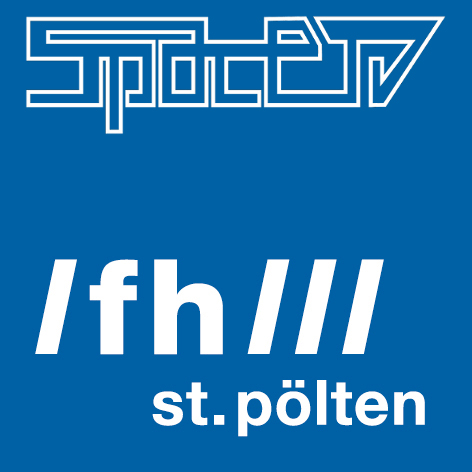Open Source Life Symposium
4.9.
Leben und Arbeiten nach Ideen aus der Entwicklung von Open Source Software: Vision einer nachhaltigen Zukunft, Horrorszenario der totalen Transparenz oder längst Realität? Im Symposium „Open Source Life“ treffen Projekte und Initiativen, politischer Aktivismus für Freiheit im Netz und kritische Analyse der Konzepte rund um „Openness“ aufeinander. Können eine Open-Source-Haltung des Einzelnen und Open-Source-Strukturen in Gesellschaften und Wirtschaft als Träger positiver Veränderung wirken?
10:30 – 12:15 Open Source Life I: Prix Forum Digital Communities
- Welcome
Gerfried Stocker (AT), Andreas Hirsch (AT) - Digital Communities 2010
Aram Bartholl (DE) - Chaos Computer Club
Tim Pritlove (DE), Discordian Evangelist, CCC - Map Kibera
Mikel Maron, co-founder of Map Kibera, and board member of the OpenStreetMap Foundation. - the ubiquitous #unibrennt cloud
Georg Schütz (AT) und andere - Discussion with participants
Moderation: Aram Bartholl (DE)
13:30 – 15:10 Open Source Life II: Open Source Life & Repair
- Why should we live an Open Source Life?
Andreas Hirsch (AT), curator at KUNST HAUS WIEN, consultant and cultural manager. „Cultural Memory and Diversity“ at WSIS II in Tunis 2005. - Trash | Track | Trash
Carlo Ratti (IT/US), civil engineer and architect, teaches at the Massachusetts Institute of Technology, director of the SENSEable City Laboratory. Founder and former president of the Comitato Valdo Fusi for promoting architectural change in Turin, Italy. A documentation of the project Trash Track can be seen in Bau 2 EG. - How to biomanufacture Bricks
Ginger Krieg Dosier (US), architect and designer, specialist for new performance materials for architecture and construction.
Teaches architecture at American University of Sharjah, United Arab Emirates. Partner at Vergelabs, creator of Biomanufactured Bricks. - Design as Conversation
John Thackara (UK), director and founder of the festival series „Doors of Perception“, where communities imagine sustainable futures. Author of numerous books including „In The Bubble: Designing In A Complex World“ - Discussion with participants
Moderation: Andreas Hirsch (AT)
15:25 – 16:45 Open Source Life III: Repair Society
- „Repair“ Democracy
Amelia Andersdotter (SE), elected member of the European Parliament on behalf of Piratpartiet and former international coordinator of Piratpartiet‘s youth organisation Ung Pirat. - Creating Diaspora
Maxwell Salzberg (US), programmer, started building a distributed social network dubbed „Diaspora.“ - The Meaning of Open is Obfuscated
- Geert Lovink (NL), Dutch-Australian media theorist and critic, founding director of the Institute of Network Cultures and founder of Internet projects such as nettime and fibreculture. His recent book titles are Dark Fiber (2002), Uncanny Networks (2002) and My First Recession (2003).
- Discussion with participants
Moderation: Andreas Hirsch (AT
17:00 – 18:30 Open Source Life IV: Repair Society (and yourself)
- Digital Formations of the Powerless
Saskia Sassen (US) saskiasassen.com, Columbia University. Recent books: Territory, Authority, Rights: From Medieval to Global Assemblages, and „A Sociology of Globalization“. Writes for OpenDemocracy.net and HuffingtonPost.com - Floating in a Rich Network of Highly Charged People and Serendipitous Events
Joichi Ito (JP), activist, entrepreneur, venture capitalist and angel investor. CEO of Creative Commons, early stage investor in Twitter, Technorati, Flickr, Last.fm and other Internet companies, board member of Mozilla Foundation, previously also of Open Source Initiative (OSI) and ICANN. – http://joi.ito.com/ - Reflections of an Open Source Life
Derrick de Kerckhove (CA), professor at the University of Toronto and the Università Federico II in Naples, Italy, directs research on digital culture(s) at Open University of Barcelona. - Discussion & Wrapup
Moderation: Andreas Hirsch (AT)
Über den Kurator:
Andreas Hirsch (AT)
Kurator, Berater und Kulturmanager. Projekte wie Entwicklung der Kategorie „Digital Communities“ für den Prix Ars Electronica (2003), „Kulturelle Erinnerung und Vielfalt“ bei WSIS II in Tunis (2005). Seit 2009 Kurator des KUNST HAUS WIEN



